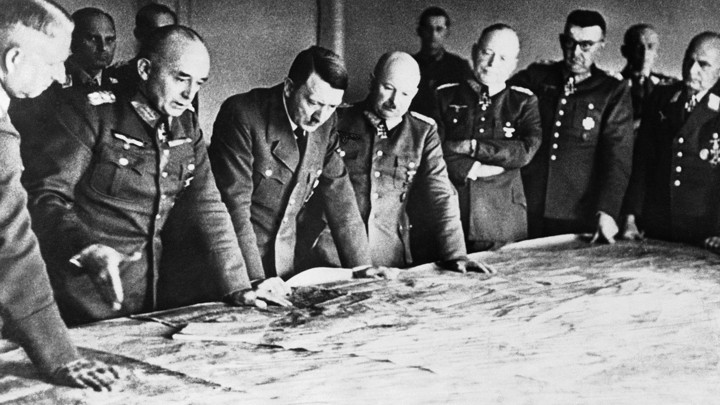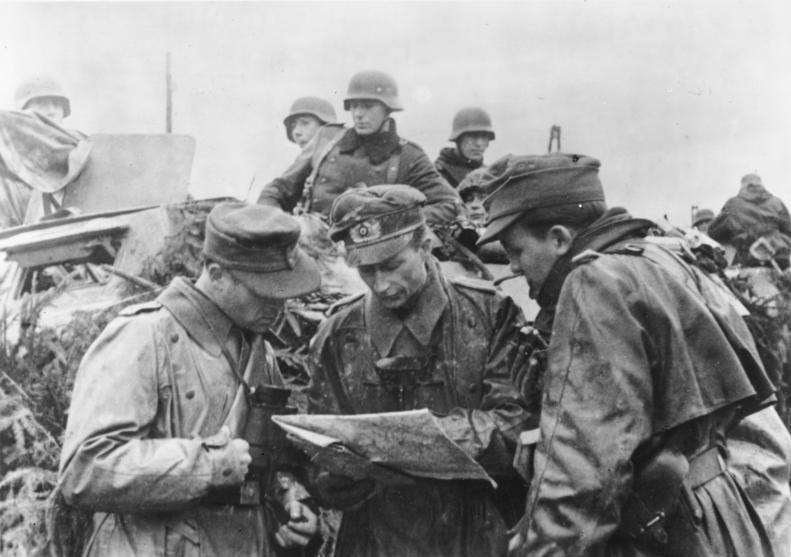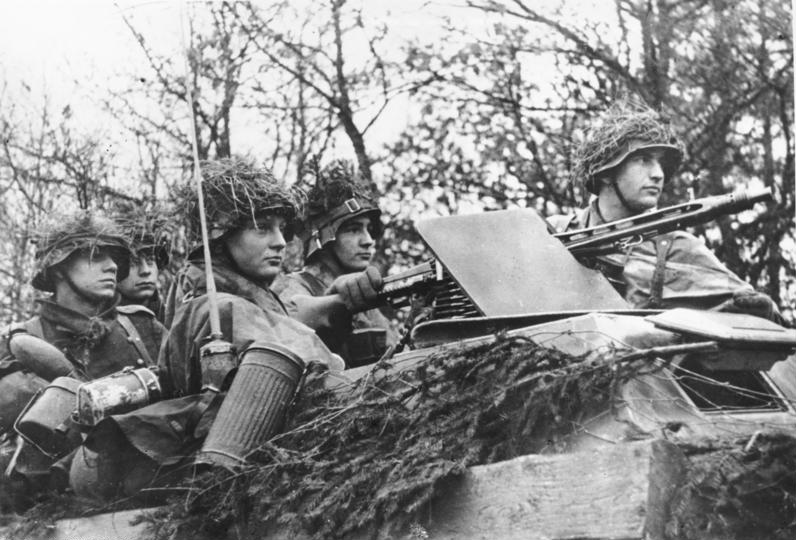Sorry, LON's post is historial nonsense and has as usual no quotes or any sources for its claims.
The Germans used some vehicles early on but due to a lack of fuel these troops had to move on foot or on bicycles near the end of the war, which explains for a good part why flexible defense was impossible.
The Third Reich had extreme fuel problems since August 1944, so that for example the advance in the Ardennes was very slow, but they drove simply not on bicycles behind the tanks.
1,261 AFV.
https://en.wikipedia.org/wiki/Battle...e-ReferenceC-5
Than to the nonsense a flexible defence was not possible and von Manstein was a disappointment:
Third Battle of Charkov 1943:
https://en.wikipedia.org/wiki/Third_Battle_of_Kharkov
If the Wehrmacht hadn't wasted it limited reserves in the following Battle of Kursk a flexible defence would have beein possible:
Following this meeting, Guderian continued to voice his concerns over an operation that would likely degrade the panzer forces that he had been attempting to rebuild. He considered the offensive, as planned, to be a misuse of the panzer forces, as it violated two of the three tenets he had laid out as the essential elements for a successful panzer attack.[n] In his opinion, the limited German resources in men and materiel should be conserved, as they would be needed for the pending defence of western Europe. In a meeting with Hitler on 10 May he asked,
Is it really necessary to attack Kursk, and indeed in the east this year at all? Do you think anyone even knows where Kursk is? The entire world doesn't care if we capture Kursk or not. What is the reason that is forcing us to attack this year on Kursk, or even more, on the Eastern Front?
Hitler replied, "I know. The thought of it turns my stomach." Guderian concluded, "In that case your reaction to the problem is the correct one. Leave it alone."[87][o]
https://en.wikipedia.org/wiki/Battle_of_Kursk
No Hitler didn't knew it better than his generals. The luck in the first part of WW II let him always gamble, when his generals were the opinion, that the offensive (Kursk, Ardennes) was a mistake and the troops should stay in reserve.










 Reply With Quote
Reply With Quote





















